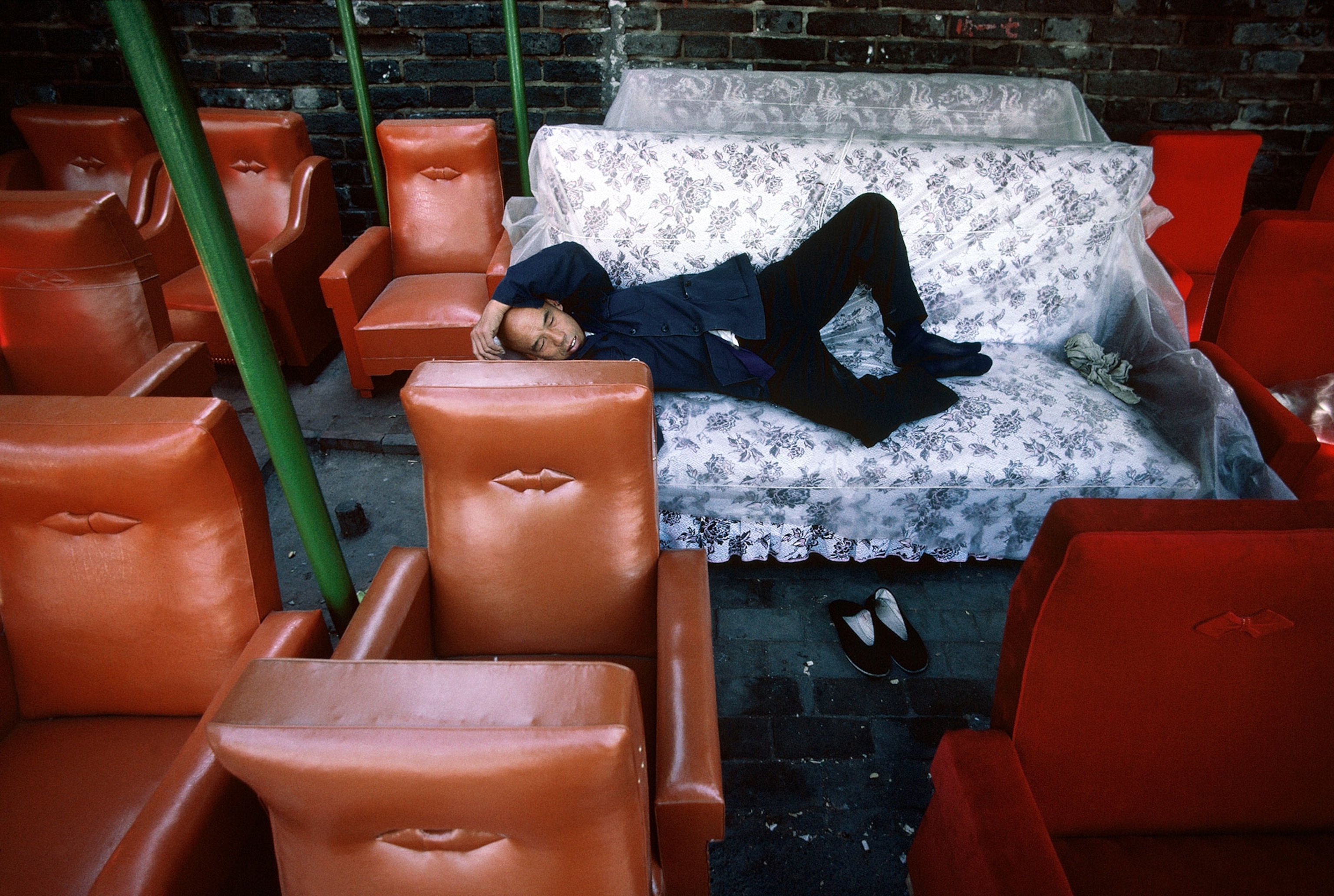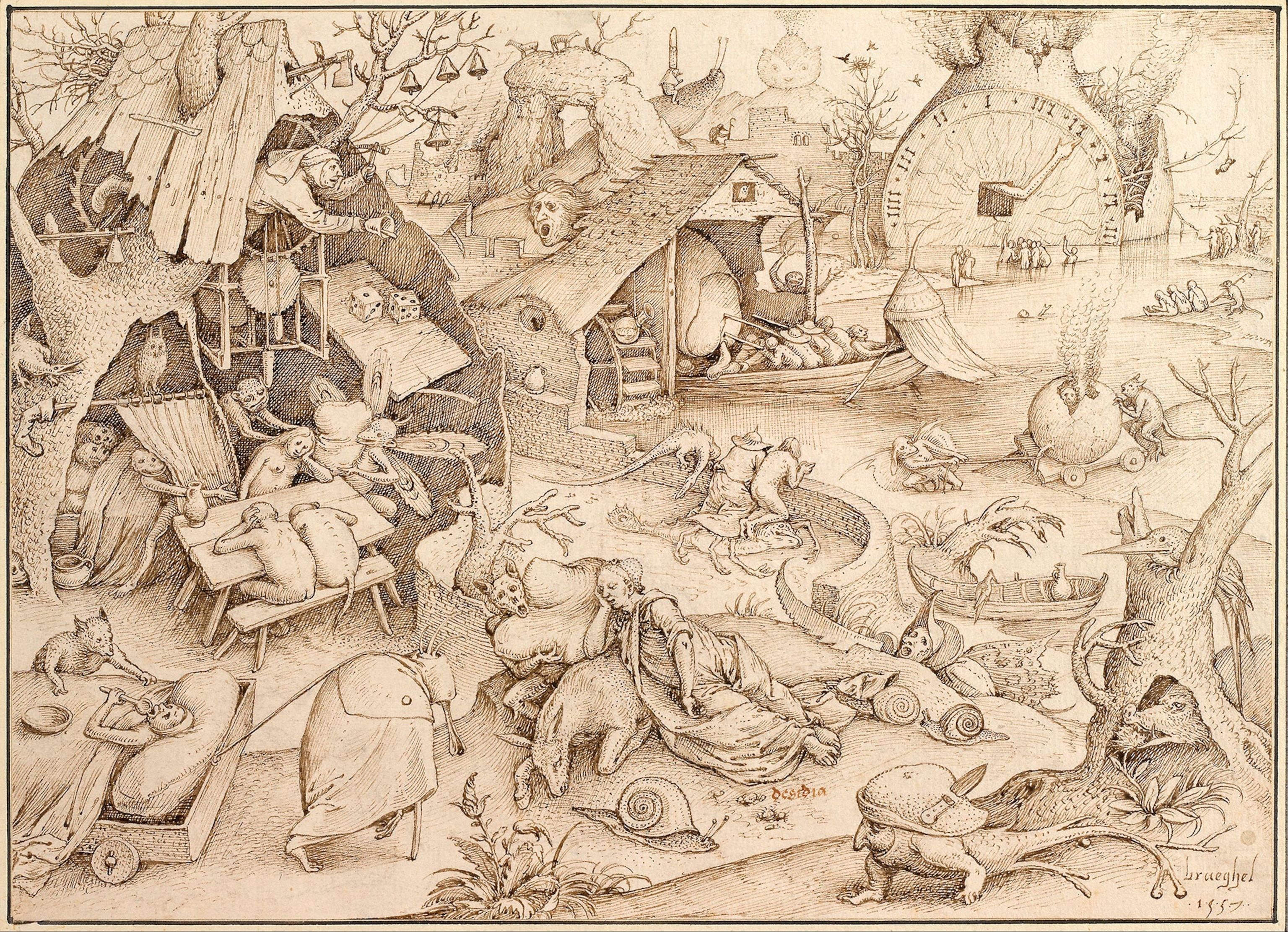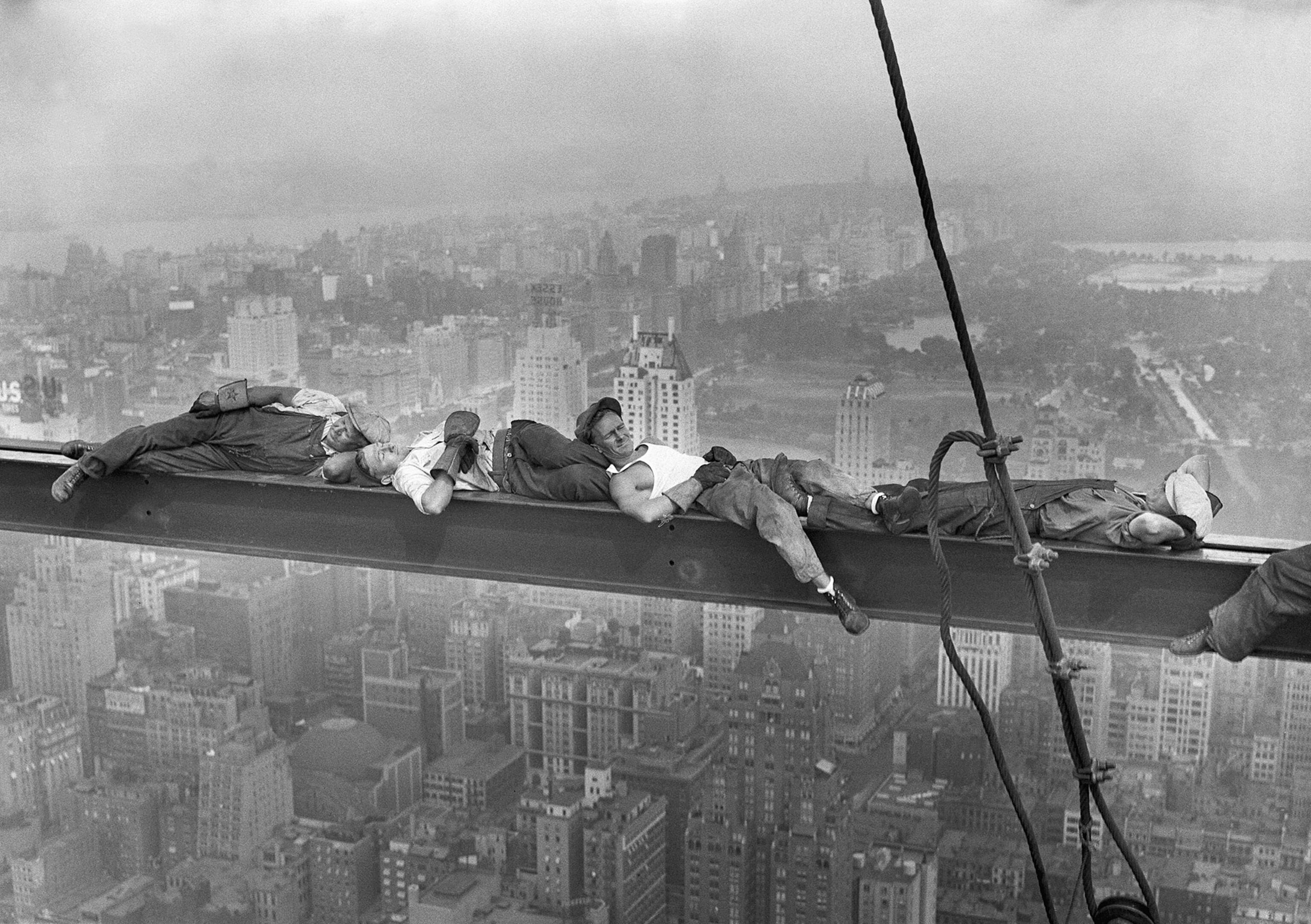
History of Exhaustion Reveals We Could All Use Some Sleep
We blame technology for our weariness. In the 19th century, the culprit was capitalism. In the Middle Ages, it was sin.
Today must be the most exhausting time to be alive: There is endless news to read, email to respond to, work to finish, photos to post, and with it all, rarely a full night’s rest. Right?
Hardly. Throughout history, scholars and scientists have pronounced their era as the most worn out—and found a variety of sinful activities and modern advances to blame for it. In the Middle Ages, the cause of depleted energy was demonic possession; in the 18th century, it was excessive masturbation; in the Industrial Age, capitalist fatigue. (Discover how nature reduces fatigue.)
“Many ages tend to present themselves as the most exhausted, as if exhaustion were a badge of honor and competing for the title of the most shattered were a kind of sport,” writes Anna Katharina Schaffner in Exhaustion: A History.
In a conversation with National Geographic, Schaffner, an associate professor in comparative literature and medical humanities at the University of Kent, talks about how we have struggled with lethargy throughout the ages—from labeling it one of the seven deadly sins to complaining of modern-day burnout.
What is exhaustion?
The kind of exhaustion I’m interested in cannot easily be explained in physical terms. I’m interested in the murky kind that lives in the border territory between mind and body. These symptoms of exhaustion appear throughout history in various different syndromes that explain exhaustion in radically different ways. The health and well-being of the individual and society influence each other. I think those exhaustion theories are really barometers for wider medical and social changes.
Why did you start tracking the various forms of exhaustion over the centuries?
I’m from Germany, and the media there is obsessed with burnout. Most of the articles start with people saying, “Ours is the most exhausting age.” They all argue that life in the past was better, and people never suffered from stress or the kind of exhaustion we’re experiencing. I started wondering, can that really be true?
Historically speaking, we all have a tendency to think of our moment as the most challenging one out there. We look back nostalgically and romanticize the past. I was interested to know: Did the ancient Greeks talk about exhaustion? Was it an issue in the Middle Ages? I was really surprised to find humanity has always worried about depletion of energy resources. What changes throughout history is not that we are worried about exhaustion, but the ways in which we explain our exhaustion.

Do any historical descriptions of exhaustion resemble how we currently think of it?
Some theories keep coming back in slightly different form. At the moment, new technology features really centrally. Nineteenth century neurasthenia theories read very similarly. They too felt life in the cities was a drain on our energies and there were far too many stimuli. Our attention was constantly being called on by trains, cars, the telegraph. They felt that the pace of life had sped up and it was hard cognitively to keep up. You notice that medical writers still are quite biased and have things they wish to critique about their own age, and they pathologize certain tendencies and certain phenomena.
One 19th-century German psychiatrist blamed everything from “images that generate sensual responses” to trapeze artists for exhaustion. What were the strangest theories you came across?
The masturbation panic that started in the 18th century was an interesting shift from theological models to medical ones. The impetus was to treat it as a sin, and they used theological models to scare patients. The medical theory was still influenced by “four humors” theory, which is when you masturbate excessively you lose precious life energy. If you do it too often, you grow pale and weak and ill.
They really believed losing an ounce of semen was as bad as losing lots of blood. It’s a funny theory but also an interesting moment in history of wanting to convince people to act morally and religiously, but using medical arguments to convince them to do so.
Astronomy and astrology are also so alien to us nowadays. The idea was that our lives are influenced by the motions of the planet and movements of celestial bodies, and if we’re out of harmony with the planets then we’re struggling against some universal law.
Was being exhausted ever stigmatized?
The only period when being exhausted was considered negative was in the Middle Ages. Acedia, the theological version of melancholia, was the medieval view that exhaustion was considered sinful. It was thought to be explicable in terms of will and commitment to God. The exhausted individual in Middle Ages was a sinner because they were not mentally strong enough and didn’t have the willpower to live a life committed to God.

When did exhaustion become fashionable?
Melancholia in classic antiquity was considered to be a condition from which only exceptional individuals suffered. The melancholic was often an artist, a scholar, or a dreamer. That became even stronger in the period of romanticism. Then neurasthenia was a fashionable disease, and a lot of writers and artists embraced it with a passion.
The theories basically argue that the neurasthenic is highly sensitive, cultured, and learned: an overall superior being. Everyone wanted to be a neurasthenic. That shifted around the time of the First World War. Neurasthenics were not taken very seriously anymore and the diagnosis fell from favor.
Figures like Franz Kafka, Oscar Wilde, and Virginia Woolf were diagnosed with neurasthenia—how did exhaustion impact the arts?
Dante’s Divine Comedy is all about overcoming spiritual exhaustion—going through the circles of hell. In Darwin’s letters you can find a lot of references to how he managed his energy resources in a very strict regime: He’d lie down to read the papers, then someone would read him correspondence, then he’d take a break.
Charlotte Perkins Gilman wrote a famous short story called “The Yellow Wallpaper,” which is about a woman who we’d now say suffers from postnatal depression. She is subjected to the “rest cure” and lies in a room all day with no intellectual stimulation and slowly goes mad.
Virginia Woolf was also subjected to the rest cure after she was diagnosed as being a neurasthenic, and she too hated it.
The rest cure prohibited all movement and required four pints of milk to be consumed per day. What were some other misguided cures?
I found a theory by this Renaissance scholar who came up with lots of bizarre recipes for Renaissance energy drinks with ingredients like pieces of gold and parts of rare animals. Some theories said you should avoid eating whale flesh, and others said drinking red wine is harmful.
The rest cure was very unappetizing: lots of milk and lots of red meat. The idea was to fatten up the patient. There was a nasty gender dimension to it because it was mainly women prescribed the rest cure. They were isolated from their friends and family and asked to fatten up.
Was exhaustion thought to affect women more harshly?
Until the 19th century most theorists talked about male exhaustion because they were interested in the [dilemma of] “brain workers,” i.e., men. The neurasthenia diagnosis affected both in the male and the female population. Women were being asked to withdraw from public life, while some men were asked to engage in occupational therapy, something sporty: One American physician recommended riding on horseback through the prairies.
The rest cure was mainly prescribed to women. If you read texts from the inventor of the rest cure, they are incredibly misogynistic. You could interpret his attempt to make women stay in the bedroom as a reaction to the budding emancipation movement and an attempt to prevent women from getting an education and into the workplace.
What type of exhaustion is fashionable now?
Nowadays, saying you’re burned out isn’t stigmatized. It’s much more stigmatized to say, "I suffer from depression." What a burnout diagnosis allows is that your image of self doesn’t suffer. The burned out can be hardworking people who take lots of responsibility. Even to say "I'm very stressed" makes it sound like you’re in demand. It is actually accepted as medical diagnosis in some European countries: In Sweden and the Netherlands, you can get sick leave when you’re diagnosed with burnout.
Why does each generation try to claim the title of most exhausted?
It has something to do with us wanting to feel proud when we believe that ours is the hardest age and we’re battling on anyway. That makes our plight sound more heroic than it might be. We feel oppressed by full in-boxes or being bombarded with emails and then think in the past they didn’t have that, they must have had an idyllic life in harmony with nature.
What we forget is that they too had their problems, many of which I would never ever want to encounter. They were battling with the Black Death and famine and war. I don’t want to diminish our stress levels—I think email and mobile phones have a massive impact on how we live, feel, and structure our lives—but in other periods there were other stressors. We’re not alone in feeling like our age is the worst.
This interview was edited for length and clarity.
Follow Nina Strochlic on Twitter.